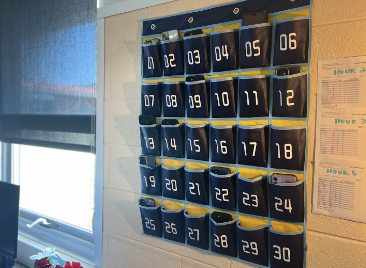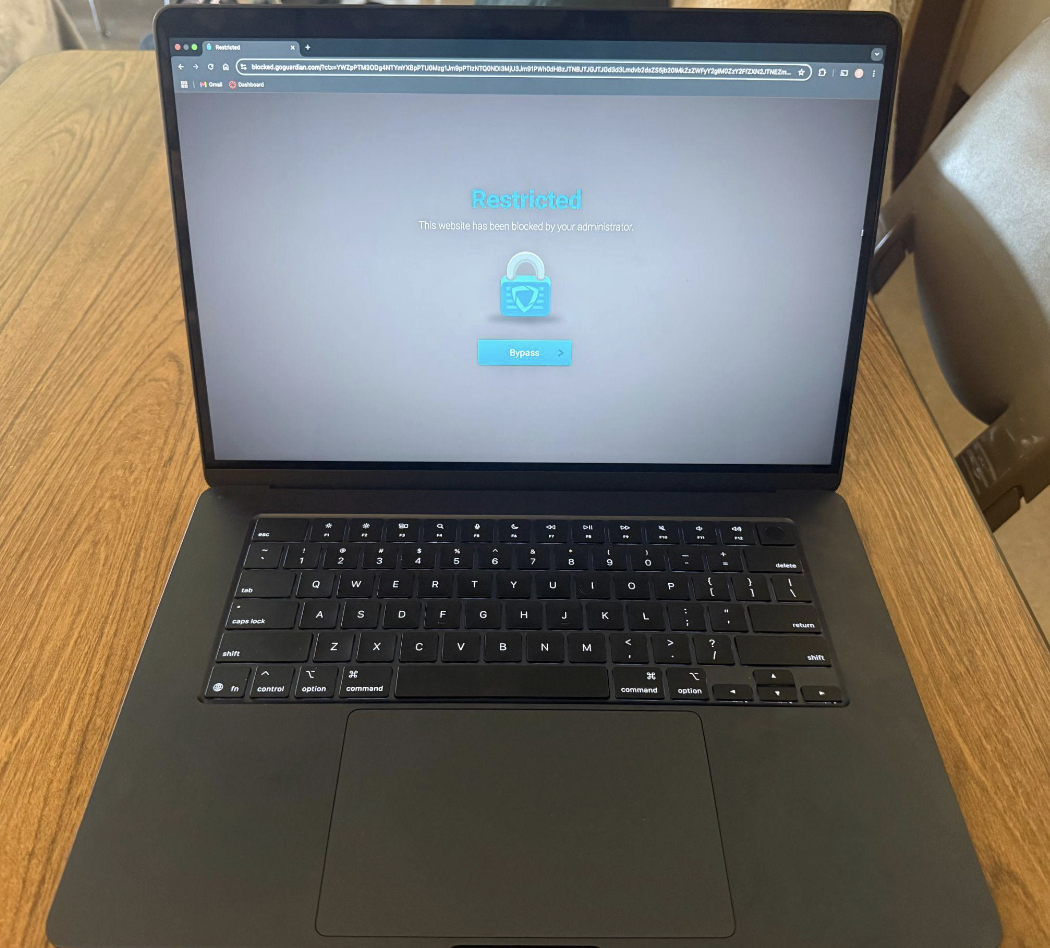
“Cell phone usage is the number one thing that needs to be worked on inside [our] classrooms,” Principal Eric Ebert said.
By limiting phone use, he aims to help students receive the education that they deserve, not to be controlling. All teachers are now required by policy to instruct their students to place their phones in the pockets and keep them there during class this year.
With schools around the country restricting phone usage by putting the Phone Free Schools Act into law—specifically in California—tensions are rising on whether Homestead will implement a similar policy.
“We aren’t in that space, nor do we want to go there,” Ebert said.
Homestead is increasingly regulating phones, but Ebert is not interested in outright banning their use.
Ebert hopes that “parents and teens know that [they] are partners together in trying to ensure that everybody is able to learn and grow. [We need to] educate people in the sense of understanding why we have the rules that we have.”
The enhanced enforcement of the phone policy is not to be overbearing but to foster deeper learning—something that Ebert believes all students deserve.
With the ever-changing world we live in, cell phones are just one of the many things that are constantly near us. Seeing someone nearby on their cell phone can tempt an individual to go on theirs.
Julia Hoefs, AP Economics teacher, said, “When students have their phones away in the pockets provided, they seem to actually be interested in what they’re learning, and attention levels have definitely increased.”
Increasing attention is a huge factor in improving learning and retention, so this will in turn result in higher grades, which are a factor of college and career readiness identified by Ebert.
Ebert recalls reading the book The Anxious Generation, which talked about how “because [Generation Z] has had access to a phone-based childhood, we have seen major increases in anxiety and other mental issues.” With this, as stated in the book Stolen Focus, the state of flow or being “in the zone” has become extremely difficult or impossible due to attention spans becoming fragmented, only allowing people to be able to “focus for no more than 47 seconds at a time on one task,” Ebert said.
Grace Martyn, senior, feels that the enforcement of the phone policy is beneficial; she believes this will help her in her future academic career.
Martyn said, “It will help me learn how to be productive instead of procrastinating. Sometimes I try to hide my phone behind my computer or away from me where I can’t see it so that I’m not tempted to pick it up and scroll through social media rather than complete my work.”
Bella Krayzman, senior, has a different view. She believes that the enforcement of the phone policy is unnecessary and that it will not help her later in life.
“People need to learn how to be responsible on their own, and if they choose to be distracted, they will learn the consequences. Nobody takes phones away in college,” Krazyman said.
Ebert believes that Homestead is in the place it needs to be regarding the phone policy and that students should have access to communication and must learn how to use phones appropriately.
Learning that skill would be a “step in the right direction,” not the complete banning of phones at our school.
Ebert feels that repetition and consistency are what students need, so having the same expectations in each class will help everyone succeed.



















